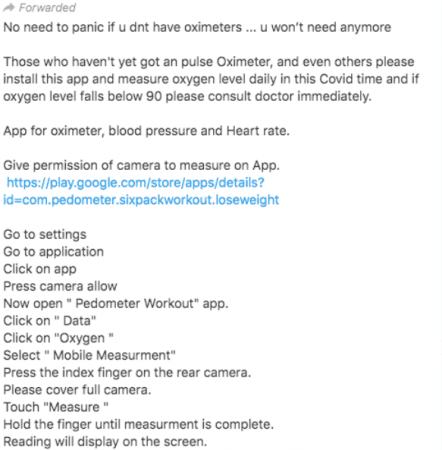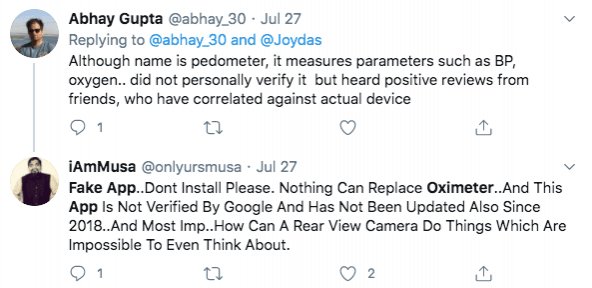
The pandemic has been throwing up problem after problem for authorities to combat. Still, crime never sleeps and the pandemic won't stop wrongdoers from doing what they do. Fake oximeter apps are the latest cybercrime scam that's running on the internet.
Citizens, however, need to be more aware. What's coming through is that gullible app-users who see the advantage of such an app might fall for the ploy.
Fake oximeter apps on mobiles
Oximeters have become a common purchase online by the public in order to measure their oxygen levels. In times of COVID-19 where oxygen levels have become an important indicator to keep peak health. Aware citizens with those at-risk at home have seen a necessity to keep a level of preparedness.
However, not all initiatives on the internet come from a well-intentioned place. This is what leads to cybercriminals capitalising on people's anxiety to feed their interests. The latest scam one needs to be aware of are fake oximeter apps. These apps are being forwarded in WhatsApp messages enticing gullible citizens.
One netizen even shared on Twitter what the WhatsApp forward looks like:

Some of these apps ask for people's biometrics such as fingerprints and using the camera to take details of the person. People may be attracted to the app as it allows them a cheaper option as compared to the quickly depleting supply of oximeters in the market as people buy them.
Ananth Prabhu G a cyber law and security trainer told Times of India, "The lastest app could be another attempt by cybercriminals. While there are safe oximeter apps too, we are noticing a rise in the development of fake apps exclusively to steal data."

So what can we do to prevent becoming the victims of these fake apps? Verify the makers and developers, read the reviews and ratings. At the end of the day, that's as much as we can do as citizens. When in doubt resort to the old-fashioned way of buying the actual product.














